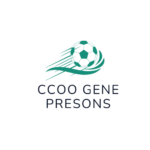Sports Nutrition Topics
- Understanding Macronutrients: Athletes should balance carbohydrates, proteins, and fats to optimize energy, muscle repair, and overall health for improved performance.
- Hydration is Key: Maintaining adequate fluid intake before, during, and after workouts is crucial for preventing dehydration and enhancing endurance and recovery.
- Strategic Meal Timing: Eating balanced meals and snacks around workout times can aid in energy availability and accelerate recovery processes.
- Role of Supplements: While supplements can enhance performance, athletes must consult professionals to ensure appropriate and safe use tailored to their dietary needs.
- Focus on Recovery Foods: Consuming nutrient-dense recovery foods post-exercise supports muscle repair and glycogen restoration, maximizing recovery benefits when consumed within 30 minutes after workouts.
- Micronutrients Matter: In addition to macronutrients, vitamins and minerals play essential roles in energy metabolism and muscle recovery, making a varied diet vital for athletes.
 In the world of sports, nutrition plays a crucial role in achieving peak performance. Athletes and fitness enthusiasts alike are increasingly recognizing that what they fuel their bodies with can make all the difference in their training and competition outcomes. From understanding macronutrients to exploring hydration strategies, sports nutrition is a multifaceted field that impacts every aspect of athletic performance.
In the world of sports, nutrition plays a crucial role in achieving peak performance. Athletes and fitness enthusiasts alike are increasingly recognizing that what they fuel their bodies with can make all the difference in their training and competition outcomes. From understanding macronutrients to exploring hydration strategies, sports nutrition is a multifaceted field that impacts every aspect of athletic performance.
As they delve into topics like meal timing, supplementation, and recovery foods, athletes can tailor their diets to meet specific goals. This article will explore key sports nutrition topics that empower individuals to optimize their performance and enhance their overall well-being. Whether it’s a weekend warrior or a professional competitor, mastering the art of sports nutrition is essential for anyone serious about their athletic journey.
Overview Of Sports Nutrition Topics
Sports nutrition encompasses various critical elements that influence athletic performance and recovery. Understanding these topics enables athletes to optimize their diet and enhance their training outcomes.
Macronutrients
Macronutrients include carbohydrates, proteins, and fats, which provide the necessary energy and support muscle repair. Carbohydrates serve as the primary energy source during high-intensity exercises. Proteins contribute to muscle growth and recovery, while healthy fats support sustained energy levels and overall health.
Hydration Strategies
Hydration plays a vital role in maintaining performance and preventing dehydration. Athletes should monitor fluid intake before, during, and after exercise, adjusting based on activity intensity and climate conditions. Utilizing electrolyte solutions can help restore lost minerals during prolonged physical exertion.
Meal Timing
Meal timing impacts energy availability and recovery efficiency. Consuming a balanced meal or snack before and after workouts optimizes energy levels and aids recovery. Timing influences muscle glycogen replenishment and protein synthesis, crucial for performance improvement.
Supplementation
Supplements can enhance performance when used appropriately. Common supplements include protein powders, creatine, and branched-chain amino acids (BCAAs), each serving specific purposes. Athletes should consult professionals before starting any supplementation regimen to ensure safe and effective use.
Recovery Foods
Recovery foods are essential for post-exercise replenishment. Options high in carbohydrates and proteins, such as smoothies, yogurt, and whole-grain sandwiches, support muscle repair and glycogen restoration. Timing recovery meals within 30 minutes post-exercise maximizes recovery benefits.
These topics reflect the foundational aspects of sports nutrition, guiding athletes in creating effective dietary strategies for improved performance and health.
Importance Of Sports Nutrition
Sports nutrition plays a crucial role in enhancing athletic performance and overall health. Proper nutrition supports energy levels, aids recovery, and can prevent injuries.
Benefits For Athletes
Athletes experience numerous benefits from optimal sports nutrition, including:
- Improved Performance: Adequate fuel enhances stamina and strength during training and competition.
- Faster Recovery: Balanced meals promote quicker muscle repair and reduce soreness after intense activity.
- Increased Muscle Mass: Sufficient protein intake contributes to muscle growth and maintenance.
- Enhanced Mental Clarity: Nutrient-rich foods support cognitive function, aiding focus and decision-making.
- Injury Prevention: A well-rounded diet strengthens the immune system and supports overall physical resilience.
- Macronutrient Ratios: Balance carbohydrates (50-60%), proteins (15-20%), and fats (20-30%) based on specific training demands.
- Hydration Strategies: Drink fluids throughout the day, and consume 16-20 ounces of water or electrolyte beverages for every pound lost during exercise.
- Meal Timing: Eat a pre-workout snack containing carbohydrates and proteins 30-60 minutes before exercise; post-workout, consume a balanced meal within 30 minutes to support recovery.
- Quality Food Choices: Focus on whole foods such as fruits, vegetables, lean proteins, whole grains, and healthy fats to meet nutritional needs.
- Supplementation: Consider supplements like protein powder or creatine only after assessing dietary intake and consulting with a sports nutrition professional.
Macronutrients In Sports Nutrition
Macronutrients play a crucial role in sports nutrition, directly influencing an athlete’s performance, recovery, and overall health. Understanding the functions of carbohydrates, proteins, and fats helps athletes tailor their diets for optimal results.
Carbohydrates
Carbohydrates serve as the primary energy source during high-intensity exercise. They are necessary for fueling workouts, maintaining glycogen stores, and supporting overall athletic performance. Athletes should focus on complex carbohydrates, such as whole grains, fruits, and vegetables, which provide sustained energy release. The recommended carbohydrate intake varies based on activity levels, typically ranging from 3 to 12 grams per kilogram of body weight per day. Consuming carbohydrates shortly before and after workouts enhances glycogen replenishment, vital for recovery and performance.
Proteins
Proteins are vital for muscle repair, growth, and maintenance, making them essential for athletes. Amino acids, the building blocks of proteins, support muscle recovery after strenuous workouts. The recommended protein intake for athletes generally falls between 1.2 to 2.0 grams per kilogram of body weight per day, depending on the intensity of their training. Sources of high-quality protein include lean meats, fish, eggs, dairy products, legumes, and plant-based proteins. Consuming protein-rich snacks after exercise enhances muscle recovery and increases strength over time.
Fats
Fats act as a secondary energy source, particularly during prolonged, low-to-moderate exercises. Healthy fats, such as those found in avocados, nuts, seeds, and olive oil, are crucial for absorbing fat-soluble vitamins and supporting overall bodily functions. Athletes should aim for fats to make up about 20-35% of their total caloric intake. Effective fat sources include omega-3 fatty acids, which possess anti-inflammatory properties beneficial for recovery. Timing fat intake is also essential; high-fat meals should be consumed several hours before intense activity to avoid gastrointestinal discomfort.
Micronutrients And Their Role
Micronutrients, including vitamins and minerals, play essential roles in supporting athletic performance and overall health. These compounds, though required in smaller amounts, contribute significantly to energy metabolism, immune function, and muscle recovery.
Vitamins
Vitamins are organic compounds critical for numerous physiological functions. They support energy production, muscle contraction, and recovery processes. Key vitamins include:
- Vitamin A: Supports vision and immune function, important for athletes undergoing intense training.
- B Vitamins: Aid in energy metabolism, especially B6, B12, riboflavin, and niacin, necessary for converting food into energy.
- Vitamin C: Functions as an antioxidant, reducing oxidative stress during exercise and supporting collagen synthesis for joint health.
- Vitamin D: Essential for calcium absorption and bone health; it also plays a role in muscle function, with recommendations of 600 to 800 IU per day for adequate levels.
- Vitamin E: Acts as an antioxidant, protecting cells from oxidative damage, with a suggested intake of 15 mg per day.
Minerals
Minerals are inorganic elements vital for various bodily functions, including muscle contraction and nerve transmission. Key minerals include:
- Calcium: Essential for bone health and muscle function, with adequate intakes ranging from 1,000 to 1,200 mg per day, depending on age and sex.
- Iron: Crucial for oxygen transport in the blood; athletes, especially females, often require higher amounts, with recommendations of 18 mg for women and 8 mg for men.
- Magnesium: Supports muscle function and energy production; intakes of 310 to 420 mg per day are recommended based on age and sex.
- Potassium: Important for fluid balance and muscle contractions, with a daily intake of about 2,600 to 3,400 mg needed.
- Zinc: Plays a role in immune function and protein synthesis, with suggested daily intakes of 8 mg for women and 11 mg for men.
Incorporating a variety of whole foods, such as fruits, vegetables, nuts, seeds, and whole grains, ensures adequate intake of these vital micronutrients, enhancing overall athletic performance and promoting recovery.
Hydration Strategies For Athletes
Hydration plays a crucial role in athletic performance. Athletes must maintain optimal fluid balance to enhance endurance, strength, and recovery. Here are effective hydration strategies for athletes.
Pre-Exercise Hydration
Pre-exercise hydration is essential for preparing the body. Athletes should consume 16-20 ounces of water 2-3 hours before exercise. Another 8-10 ounces should be ingested 20-30 minutes before physical activity. This approach ensures adequate hydration levels before starting the workout.
During Exercise Hydration
During exercise, athletes lose fluid primarily through sweat. For workouts lasting less than an hour, water suffices for hydration. For longer sessions, a combination of water and electrolyte-rich beverages is recommended. Aim for 7-10 ounces of fluid every 10-20 minutes. This keeps hydration levels stable and maintains performance.
Post-Exercise Hydration
Post-exercise hydration aids recovery. Athletes should consume 16-24 ounces of fluid for every pound of body weight lost during exercise. This ensures replenishment of lost fluids. Including electrolytes in post-workout drinks can further support recovery.
Signs of Dehydration
Recognizing signs of dehydration is vital. Common symptoms include dry mouth, dizziness, fatigue, and decreased performance. Athletes must monitor urine color as an indicator. Pale yellow indicates proper hydration, while dark yellow suggests dehydration.
Specialized Hydration Solutions
Specialized hydration solutions, such as electrolyte drinks, offer benefits for prolonged activity. These drinks contain sodium, potassium, and carbohydrates. They help maintain electrolyte balance and provide energy during extended exercise sessions.
Hydration During Environmental Stress
 Athletes should adjust hydration strategies according to environmental factors. In hot and humid conditions, fluid losses increase. Enhancing fluid intake before, during, and after exercise becomes critical to prevent heat-related issues.
Athletes should adjust hydration strategies according to environmental factors. In hot and humid conditions, fluid losses increase. Enhancing fluid intake before, during, and after exercise becomes critical to prevent heat-related issues.
Implementing these hydration strategies will significantly improve athletic performance and recovery while reducing the risk of dehydration-related complications.
Athletes Can Fuel Their Bodies Effectively
Understanding sports nutrition is essential for anyone looking to enhance their athletic performance. By focusing on the right balance of macronutrients and micronutrients athletes can fuel their bodies effectively. Hydration strategies play a crucial role in maintaining peak performance and preventing fatigue during intense workouts.
Meal timing and recovery foods are vital components that shouldn’t be overlooked. Tailoring nutrition plans to meet individual goals can lead to significant improvements in performance and recovery. With the right knowledge and approach to nutrition athletes can unlock their full potential and achieve their fitness aspirations.

